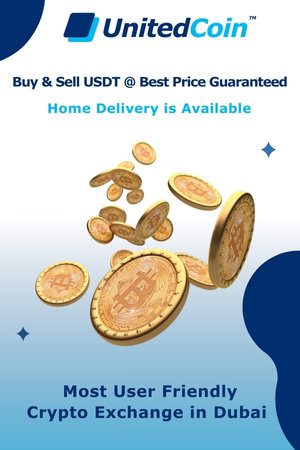In the ever-evolving global financial landscape, the phenomenon of de-dollarization has emerged as a topic of significant importance, reshaping the dynamics of international trade, finance, and geopolitics. As nations seek to diversify their reserves and reduce dependence on the US dollar, various alternative assets and currencies have gained prominence, presenting both challenges and opportunities for investors, policymakers, and businesses worldwide.
Understanding De-Dollarization: An Overview
De-dollarization refers to the gradual process of reducing reliance on the US dollar in international transactions, reserves, and financial markets. While the US dollar has long served as the dominant global reserve currency, recent geopolitical tensions, economic uncertainties, and the emergence of alternative financial systems have prompted many countries to explore alternative arrangements.
Key Drivers of De-Dollarization
Several factors contribute to the ongoing trend of de-dollarization:
1. Geopolitical Considerations
Heightened geopolitical tensions, particularly between the United States and other major powers, have fueled concerns about the vulnerability of the global financial system to political conflicts and sanctions. As a result, countries seek to reduce their exposure to potential disruptions by diversifying their currency reserves.
2. Economic Shifts
Economic developments, such as trade imbalances, inflationary pressures, and monetary policy divergence among major economies, influence the attractiveness of alternative currencies and assets. Countries may opt to hold reserves in currencies that offer greater stability, liquidity, and purchasing power.
3. Technological Innovations
Advancements in financial technology (FinTech) have facilitated the proliferation of digital currencies, stablecoins, and blockchain-based platforms, offering new avenues for cross-border transactions and settlements. Central bank digital currencies (CBDCs) have emerged as a potential tool for modernizing payment systems and reducing reliance on traditional intermediaries.
BRICS and the Quest for Financial Sovereignty
The BRICS bloc, consisting of Brazil, Russia, India, China, and South Africa, plays a pivotal role in the de-dollarization landscape, representing a diverse group of emerging economies with significant geopolitical influence and economic potential.
Collaborative Efforts
BRICS member states have actively pursued initiatives to promote financial cooperation, enhance liquidity arrangements, and reduce dependency on Western-dominated financial institutions. Efforts such as the establishment of the New Development Bank (NDB) and the Contingent Reserve Arrangement (CRA) aim to provide alternative sources of financing and cushion against external shocks.
Embracing Alternative Currencies
Within the BRICS framework, discussions on de-dollarization have intensified, with member countries exploring mechanisms to facilitate trade and investment in their respective currencies. Bilateral currency swap agreements, trade settlements in local currencies, and the use of gold as a reserve asset reflect efforts to diversify away from the US dollar.
Bitcoin, Stablecoins, and the Future of Finance
The rise of digital assets, including Bitcoin and stablecoins, has added a new dimension to the de-dollarization debate, offering decentralized alternatives to traditional fiat currencies and banking systems.
Bitcoin as a Store of Value
Bitcoin, often referred to as “digital gold,” has gained widespread attention as a hedge against inflation, currency devaluation, and financial repression. Its limited supply, censorship resistance, and borderless nature appeal to individuals and institutions seeking to preserve wealth and transact beyond the confines of traditional financial institutions.
Stablecoins and Payment Innovation
Stablecoins, pegged to fiat currencies or commodities, provide price stability and facilitate seamless transactions on blockchain networks. With the potential to bridge the gap between traditional finance and decentralized ecosystems, stablecoins offer efficiency, transparency, and accessibility in global payments and remittances.
Central Bank Digital Currencies (CBDCs): A Paradigm Shift in Monetary Policy
Central banks worldwide are exploring the issuance of CBDCs as a means to modernize payment systems, enhance financial inclusion, and address challenges posed by cashless societies and digital innovation.
Advantages of CBDCs
CBDCs offer numerous potential benefits, including:
- Improved efficiency and transparency in payment systems
- Enhanced monetary policy transmission and financial stability
- Greater financial inclusion and access to digital financial services
- Mitigation of risks associated with cash usage and illicit activities
Implementation Challenges
Despite the promise of CBDCs, their widespread adoption faces various technical, regulatory, and policy considerations. Issues such as privacy protection, cybersecurity, interoperability, and monetary sovereignty require careful deliberation to ensure the successful deployment of CBDCs on a global scale.
In conclusion, the landscape of de-dollarization is multifaceted, driven by geopolitical, economic, and technological forces reshaping the global financial order. As countries, institutions, and individuals navigate this complex terrain, understanding the dynamics of alternative currencies, digital assets, and central bank digital currencies becomes imperative for informed decision-making and strategic positioning in the evolving financial ecosystem.




